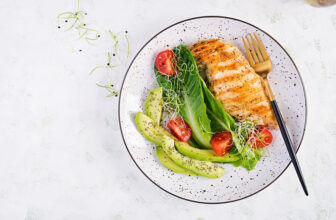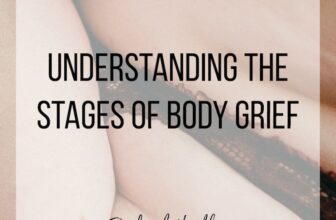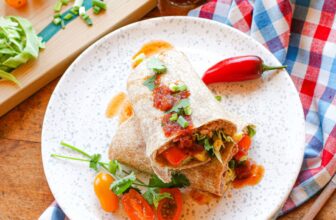
[ad_1]
The Washington Post’s article, “As Obesity Rises, Big Food and Dietitians Push ‘Anti-Diet’ Advice.” is an example of what happens when journalists lose all nuance and common sense to sell a narrative that doesn’t quite add up.
Under the helm of Anahad O’Connor and ‘The Examination,’ the WaPo’s attack dog investigative team, the public is getting used to impotent and poorly constructed arguments against dietitians for actually doing their jobs.
To sum their argument up: dietitians are denouncing food shame and diets, and promoting foods that aren’t fruits and vegetables. Therefore, we are the reason for the high rates of obesity in the United States.
God forbid people have choices around their food AND don’t feel shame for what they eat.
This latest piece begins with what the authors believe is a link between the anti-diet movement, and cereal maker General Mills’ ‘Derail the Shame’ campaign.
Here, the authors attempt to convince readers that when dietitians promote the philosophy that all foods can fit, this is the same as us recommending that people should eat nothing but Lucky Charms. That anti food-shaming messaging by dietitians and companies is always opportunistic, and that it’s singularly responsible for the rising rates of obesity.
It’s a terrible argument.
As you’ll see in a moment, a very small faction of RDs (and other influencers that WaPo conveniently doesn’t mention) have exploited the ‘anti-diet’ title to support unscientific ideas, but this isn’t what’s happening when dietitians – or General Mills – stand up and call out food shaming for the problem it is.
General Mills has donated a significant amount of money to No Kid Hungry, which works to improve kids’ food security in vulnerable neighborhoods around the country.
Let’s talk about shame for a moment, because in the process of panning legitimate anti food shaming efforts, the authors of this article are engaging in their own brand of shaming.
When we use words like ‘junk’ to describe food, it can lead to guilt and shame for people who eat those foods. It’s important to understand that food choices are highly personal, complex, and undeniably nuanced beyond just ‘eat this, not that.’
People get fatter when they’re shamed about their weight and their diet, and research proves this (and here)
People in larger bodies who feel guilt, shame, and disgust about themselves and their eating habits are more likely to binge eat, according to this 2022 study. And this one. And this one, too.
Telling people that they shouldn’t be eating a bowl of cereal because it’s ‘sugary junk’ is not going to help anyone lose weight, and it’s certainly not going to make a dent in the number of obese individuals in any country.
We’ve tried dieting. Not only does it not work, it has the opposite effect. The reason why people are fat is far more complex than a box of cereal.
Senator Richard Blumenthal (D-Conn.) weighed in with this perfect example of an uneducated opinion:
“I think it is really reprehensible for the food industry to prey on the vulnerabilities of people who suffer from diabetes or obesity or diseases that are caused by excessive sugar, fat and perhaps other ingredients that do them harm,” Blumenthal said. “To tell people they should be proud of eating the wrong things, that’s hardly doing them a service.”
I had no idea that General Mills advertises specifically to people who have obesity and diabetes.
And with all due respect, Senator, I’m sure the majority of dietitians don’t tell anyone to be proud of what they eat, be it vegetables or cereal. That’s because the flip side – people feeling ashamed of eating the foods that people like you call ‘wrong’ – is destructive and harmful.
Dietitians understand that morality-based judgements around food and being proud of yourself because you chose the ‘right’ things to eat that day are the hallmarks of a disordered relationship with food. Food is food. Period.
Yes, some foods are more physically nourishing, others more emotionally nourishing. A healthy diet has both. So please, spare me your concern-trolling. People don’t need more judgement and more diets. They need change effected where it can actually help.
The article goes on to name-drop dietitians who the journalists feel are professionally remiss for promoting foods like protein pancakes, pizza with chickpea flour crust, and grass-fed beef jerky sticks.
Lauren Smith, who calls herself a “food freedom dietitian” on TikTok, has posted ads for frozen pizza from a gluten-free brand, Banza, and for a high-protein snack company, Lorissa’s Kitchen, to her more than 70,000 followers.
I take it that we can’t be free to eat without guilt and shame unless we’re eating the ‘right’ foods that have been approved by WaPo journalists?
Dietitian Colleen Christensen posted a video of herself eating rocky road ice cream on her TikTok account @no.food.rules, in which she mocks low-calorie alternatives. She has made ads for pancake makers Kodiak Cakes and Premier Protein for her 300,000 followers.
NOT FULL FAT ROCKY ROAD! OH MY GOD!
The pearl-clutching, performative outrage around these dietitians’ work is incredibly obtuse. It’s unrealistic to imply that dietitians who are promoting anything besides whole foods are somehow doing harm.
Nobody’s diet consists exclusively of whole foods, even Senator Blumenthal’s, I’m sure.
And again, who is determining that these foods are unworthy of dietitian support? What are the criteria being used here? No matter what food we promote, there will always be someone who believes that it’s ‘unhealthy.’
Content that communicates the messaging that we no longer have to punish ourselves with the ‘diet’ foods we feel we ‘should’ be eating, is helping people, not hurting them. It’s not the same as ‘promoting obesity’ or denying that being overfat comes with health risks.
Only people who have no clue what it’s like to counsel clients for weight loss or to listen to individuals who have had decades of their lives ruined by diets and disordered eating, would ever create such a witless uproar over what these dietitians are doing.
In fact, reading the allegations that these journalists are making about my colleagues is like watching a disaster in slow motion. It’s so utterly clueless, it’s painful.
I have never, ever seen a dietitian – or General Mills, for that matter – tell anyone that they should replace all of their meals with ready to eat cereal.
Some people do eat cereal for each meal, but it’s likely because they lack the time, access, or money for anything else. Cereal is inexpensive, it’s convenient, it’s fortified with essential nutrients. It’s often given out at food pantries. It’s also delicious.
And no, I did not get paid by Big Cereal to write that.
Counselling thousands of people over my 24 years in practice as a dietitian has taught me that food insecurity is a real problem in our society. I believe that it, and other social determinants of health, are the real reason why so many people are suffering from weight-related issues.
Not because they’re eating the ‘wrong’ foods, but because society is failing them on the most basic levels. Telling people what not to eat isn’t the answer. What is? Improving access to health care and doing something about healthcare’s horrific racial (and here) and weight biases that lead to poor outcomes in these patients. Improving education, raising pay, and continuing to subsidize nourishing food among other things.
Read more about the Social Determinants of Health and how they affect us, here.
I find it particularly egregious that for a left-leaning paper that has historically championed inclusivity, exposed systemic shortcomings, and placed importance of telling the whole story, there was no mention in this piece about any of this. That is shameful.
One part of the article that I do agree with is where the authors write about the co-opting of the anti-diet, HAES (Health At Every Size), and intuitive eating movements by privileged individuals, dietitians, and influencers looking for attention and to profit.
There is a group of dietitians whose extreme narrative is that any intentional weight loss is wrong and disordered, that diets cause more health problems than fatness does, and that fatness is not related to risk for disease.
For the record, I do not agree with any of this.
The Washington Post was correct in calling these people out for their misinformation and science-denial, but these professionals are a small minority in the dietetics community. Dietetics is an evidence-based, regulated health profession. There’s not a lot of room to make up your own fantastical anti-science theories without either being ostracized or finding your license at risk for revocation.
The majority of dietitians are helping people live better, healthier lives. We can effectively interpret and communicate science, and we are the most qualified profession in the world to counsel and advise individuals on what and how they should eat.
If the Washington Post has no faith in the ethics of dietitians, who then is the public to trust for nutrition information? Naturopaths? Unregulated nutritionists or ‘nutritional therapists’? The harm of an article such as this WaPo one is that it erodes trust in dietetics professionals and drives the general public to seek the help of less qualified individuals.
I’m not sure why this outlet and these particular journalists seem obsessed with finding corruption in the dietetics community at large, when the evidence for this has remained elusive…even after now two ‘investigative’ pieces?
Perhaps it’s important to not paint an entire profession with the same brush, and to understand all facets of a complex situation before you report on it.
[ad_2]






